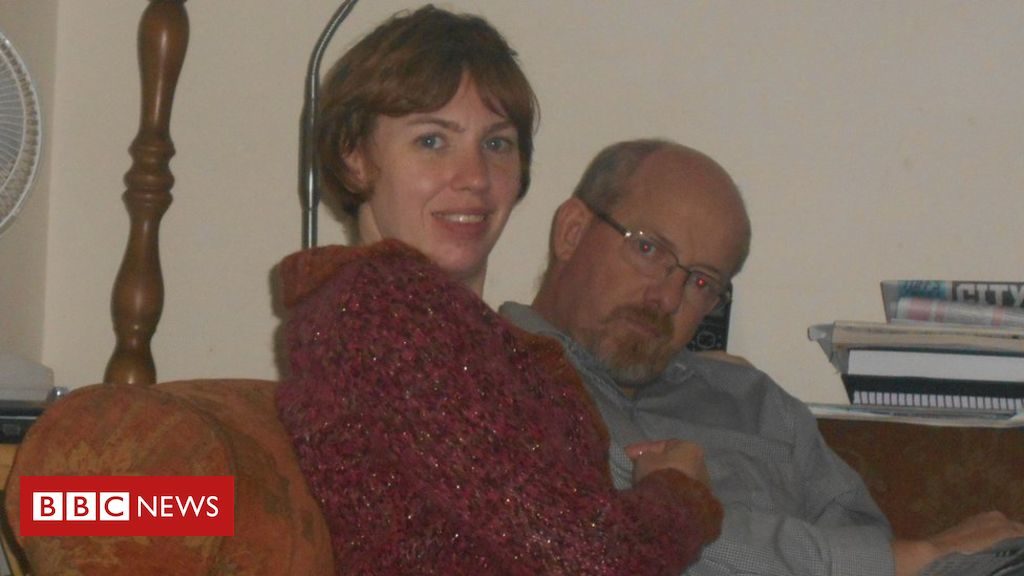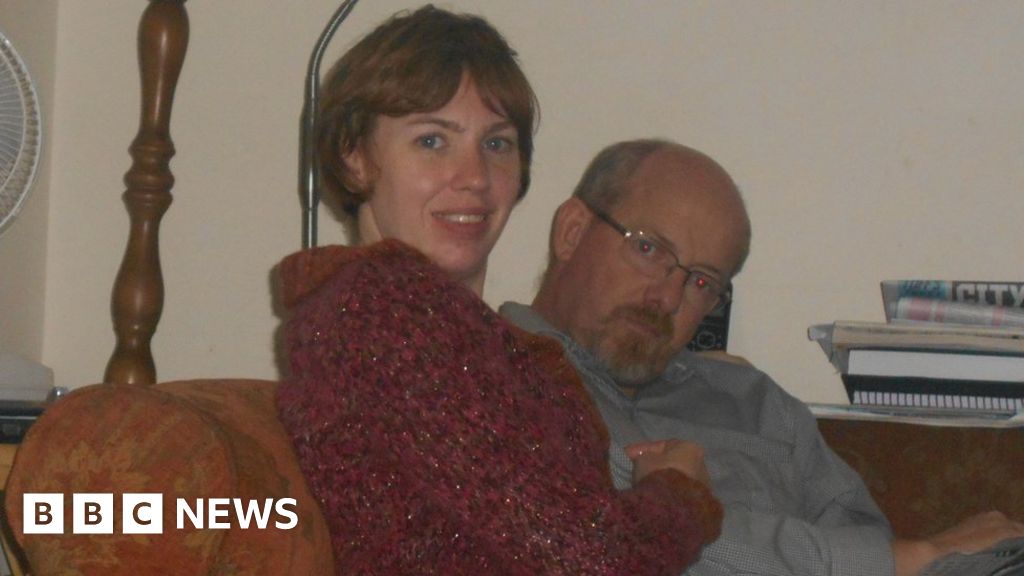Bereaved families struggling due to cuts, campaigners say
The people who are struggling to bring up their children after the loss of a partner. …


Thousands of parents whose partners have died are struggling because of changes to bereavement support payments, according to campaigners. The BBC has spoken to families left devastated by the death of a loved one – not just emotionally but also financially.
‘We would have lost everything’
It seemed like a normal summer’s afternoon last June for Sophie Laws. She had just got home from her five-year-old son Alexandre’s school, where she works as a midday assistant.
She put the washing away before going upstairs to see her partner Andrew. He had been battling sepsis and other health problems for several years, but seemed to be getting better and spent the previous day playing in the garden with their little boy.
As she climbed the stairs she had no sense that anything was wrong, but as she reached their bedroom she saw Andrew lying dead in their en-suite bathroom.
Sophie, 39, was not married to Andrew, who was 52 when he died, but they had a joint bank account and a joint mortgage on their house in Saffron Walden, Essex. “We chose not to get married, we felt it was an outdated institution. We had Alexandre and the house – we had everything we needed,” she said.
Leading up to Andrew’s inquest, where an open verdict was recorded because it was not possible to work out the cause of his death, the coroner’s office was apparently confused by their different surnames and repeatedly referred to Sophie as the estranged wife, causing her huge distress. This was compounded by discovering she was would not get any financial support, because they were not married.
There are 3.4m cohabiting couples, according to figures just released, making them the fastest growing family type in the UK. A year ago, the Supreme Court ruled it was unlawful to block them from claiming bereavement support payments, but nothing has yet changed in practice.
Sophie is now back at work part time but only survives financially due to her family. “Andrew was a tax adviser; his was the main income, which we lost when he got ill, and his benefits suddenly stopped when he died. We would have lost the house without the help of my family. We would have lost everything.”
‘I’m not sure how I survived’
Even some widowed parents who were married are struggling due to changes to the support available. Chloe Leaper, 38, lives with her three-year-old daughter Thea in Cambridge. Her husband Matt was diagnosed with bone cancer just 10 days after Thea’s birth and died nine months later.
Fortunately, he had life insurance so she could pay off their mortgage, but having lost his entire income she moved in with his parents so she could rent the house out and earn some money to raise their child.
“Everything changed for us. Our entire world was decimated. We left home one day and never lived there again. I didn’t have a future any more. I didn’t want to wake up, the emotional pain and trauma was so acute. It was the ultimate torture watching him die while trying to care for our baby; it felt like it was designed to destroy me.”
Chloe struggled to bond with Thea due to grief and postnatal depression, made worse by their financial situation.
In April 2017, the government overhauled the benefit system for widowed parents. They now receive a lump sum of up to £3,500 alongside monthly payments of up to £350. However, these payments stop after 18 months.
A cancer nurse broke the news to Chloe that had her husband had died just one month earlier, she would have received support until their daughter turned 18.
“I’m so glad Matt didn’t know, he would have been devastated. He won’t draw his pension, so all of the National Insurance contributions he has made, they should go to Thea. I want to be able to tell her ‘here is the money he provided for you’, and make a difference to her life.”
Chloe recently returned to work part time as an artist and teacher to bring in extra money, now the payments have stopped. “The government is targeting people who are in the worst position to deal with stress. I look back on these last few years and I’m not sure how I survived.
“My biggest fear was Matt dying and I thought it was more than I would be able to bear but I am still going.”
‘There’s suddenly only one of you’
Ben Brooks-Dutton was widowed in November 2012, when his wife Desreen was killed by a speeding driver who mounted the kerb in West Hampstead, London, as the couple were walking with their toddler, Jackson.
Because she died before the changes came in, he will get financial support until Jackson is an adult, so Ben was able to leave his job in PR to spend more time with his son.
“I’m a single parent to an eight-year-old who was two when his mum died. I had a big job that I eventually had to walk away from because he really needed my time. I now work part time as a freelancer and the allowance has given me options and allowed me to make longer-term decisions about what’s right for my son.
“There’s suddenly only one of you, with less earning capacity and fewer shared hours and options. It’s hard.
“And doing ‘the right thing’ often takes the place of having the career you once had. The new system ignores all that and fails to put bereaved children first, as evidenced by the need for their parents to be married to receive any financial support,” he said.
Ben chairs a taskforce called Life Matters, which is fighting for better support for bereaved families, alongside the charity Widowed and Young. Georgia Elms, from the charity, believes the cuts will have a detrimental impact on thousands of children.
“Grieving doesn’t stop suddenly after 18 months and there is a real risk that bereaved children may not get the support they need because of these changes,” she said. “Nothing can take away the pain of a loved one’s death, but proper financial support, based on the late parent’s National Insurance payments, can at least help provide the building blocks for a better future for bereaved families.”
The Department for Work and Pensions said it was committed to supporting people during bereavement and was considering possible options following the Supreme Court ruling.
Find BBC News: East of England on Facebook, Instagram and Twitter. If you have a story suggestion email eastofenglandnews@bbc.co.uk




